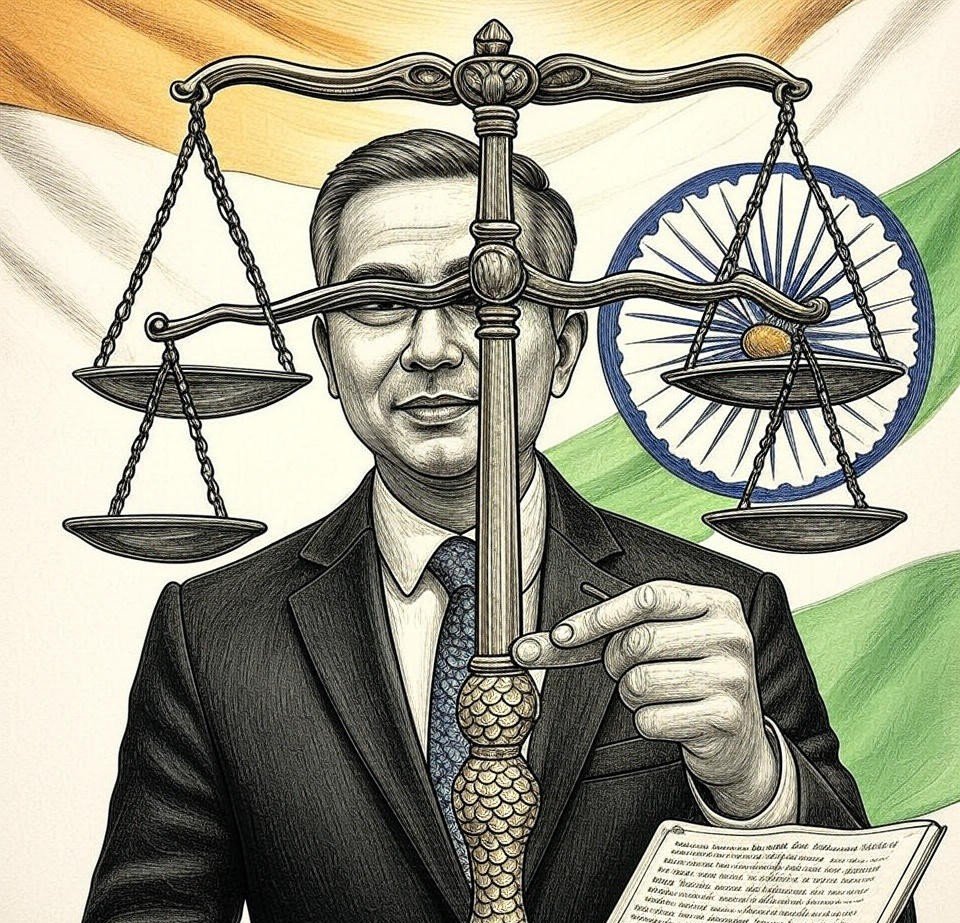NRI Muslim Court Marriage and Marriage Registration in Delhi
Navigating government procedures for marriage registration can be confusing and frustrating. For many in the Muslim community, these challenges have sometimes prevented them from getting their marriages legally recognized by the state. However, a recent landmark judgment by the Delhi High Court has reinforced the fundamental right to have a marriage registered.
Legal Framework for Muslim Marriage Registration in Delhi: A Case Study from the High Court of Delhi
In the complex world of legal processes, marriage registration often presents challenges, especially for couples navigating the requirements of the Special Marriage Act, 1954. This article examines a significant case from the High Court of Delhi that highlights the hurdles faced by petitioners in registering their marriages.
Introduction
We will delve into the specifics of the case, the legal arguments presented, and the implications for future marriage registrations, particularly in the context of virtual appearances. This case serves as a crucial reference point for Non-Resident Indians (NRIs) and others seeking legal assistance in similar situations.
The Case Overview
On September 24, 2025, the High Court of Delhi heard a petition filed by Sadaf, the petitioner, against the Government of the National Capital Territory of Delhi (GNCTD).
The case, identified as W.P.(C) 14496/2025, revolves around the insistence of the GNCTD for the physical presence of Sadaf’s husband, Mr. Irshad Balaydin, for the registration of their marriage under the Special Marriage Act, 1954.
Background of the Case
Marriage Solemnization
Sadaf and Mr. Balaydin solemnized their marriage on November 3, 2024. Following this, they submitted an online application for marriage registration, in compliance with the prescribed legal procedures.
Initial Appearance
After securing an appointment through their online application, Sadaf and her husband visited the relevant office along with three witnesses, where they presented all required documents, including proof of identity, address, age, photographs, nikah nama (marriage contract), and affidavits.
Second Appearance Demand
Despite fulfilling all initial requirements, the authorities insisted on Mr. Balaydin’s physical presence for a second appearance. However, he had to return to the Netherlands due to pressing business commitments.
Legal Arguments Presented
Sadaf’s legal team, comprised of advocates Mr. Vikas Kumar Pandey, Mr. Hemdeep Moran, Mr. Faiz Imam, and Mr. Dinesh Kumar Singh, argued that:
Virtual Appearance Request
Given Mr. Balaydin’s unavoidable circumstances, Sadaf requested that he be allowed to appear virtually via video conferencing for the second appearance needed to complete the marriage registration process.
Precedents Cited
The petitioners referenced previous cases where the court permitted virtual appearances in similar situations, notably the case of Faeez Ahmed v. Govt. of NCT of Delhi & Ors., where the court allowed a petitioner’s wife to appear virtually due to her educational commitments abroad.
Judicial Interpretation
The petitioners further cited the judgment in Reena Chada & Anr. v. Govt. of NCT of Delhi, which emphasized that the interpretation of the law should include virtual presence, thereby facilitating access to justice and preventing unnecessary delays in legal processes.
The Court’s Considerations
The High Court, presided over by Hon’ble Mr. Justice Sachin Datta, carefully considered the petitioner’s arguments and the precedents cited. The court recognized the evolving nature of legal proceedings in light of technological advancements, particularly the role of video conferencing in ensuring that legal processes are accessible and efficient.
Importance of Virtual Presence
The court acknowledged that requiring physical presence could lead to undue hardship for individuals who are unable to travel due to various legitimate reasons, such as professional commitments or health issues.
The integration of virtual appearances into legal proceedings has the potential to enhance accessibility, particularly for NRIs and others who may face logistical challenges.
Implications for Future Marriage Registrations
The outcome of this case has broader implications for marriage registrations under the Special Marriage Act, 1954. As technology continues to play a significant role in legal processes, several key points emerge:
Precedent for Virtual Appearances
The court’s willingness to consider virtual appearances sets a precedent that could benefit many couples facing similar challenges. This flexibility can streamline the registration process and reduce the burden on individuals who may have to travel long distances.
Legal Framework Adaptation
The legal framework governing marriage registrations may need to evolve to formally incorporate provisions for virtual appearances, ensuring that such practices are recognized and accepted across various jurisdictions.
Access to Justice
Emphasizing virtual appearances aligns with the broader goal of enhancing access to justice, particularly for marginalized groups and individuals living abroad who may find it difficult to comply with traditional requirements.
Case Brief: Sadaf v. Govt of NCT of Delhi & Anr. (Transfer Petition W.P.(C) 14496/2025)
Court: High Court of Delhi
Date: September 30, 2025
Jurisdiction: India
Legal Area: Muslim Marriage, Marriage Registration in Delhi
I. Issue
The primary issue in this case is whether the petitioner, Sadaf, is entitled to compel the Government of NCT of Delhi to register her marriage under the Muslim Personal Law and the relevant statutory provisions governing marriage registration in Delhi.
II. Rule
The legal framework governing marriage registration in Delhi includes the Muslim Personal Law (Shariat) Application Act, 1937, and the Delhi Registration of Marriages Act, 2010.
Under these laws, marriages must be registered to provide legal recognition and rights to the parties involved. The registration process is designed to ensure that marriages are documented officially, providing legal protection and clarity to marital relationships.
III. Application
Key Facts:
- Sadaf, the petitioner, entered into a marriage recognized under Muslim law.
- Despite fulfilling the necessary conditions for marriage registration, Sadaf faced refusal from the Government of NCT of Delhi in registering her marriage.
- The refusal was based on procedural grounds, which Sadaf contended were not in accordance with the established laws governing marriage registration for Muslims.
- Sadaf filed a transfer petition seeking intervention from the High Court to compel the registration of her marriage.
Procedural History:
- The petitioner initially approached the local marriage registration office, which denied her application.
- Following this, Sadaf filed a writ petition in the High Court seeking direction to the authorities to register her marriage.
- The case was brought before the High Court of Delhi, where it was heard on its merits.
Arguments:
- Sadaf argued that the refusal to register her marriage was arbitrary and violated her rights under the Constitution of India, particularly the right to equality and the right to marry.
- The Government of NCT of Delhi contended that the refusal was based on procedural lapses and that the registration process needed to be adhered to strictly.
FAQ for Legal Light Consulting
Q1: What should I do if my spouse cannot be physically present for the marriage registration process in India?
A1: If your spouse is unable to be physically present for the marriage registration, you can request permission for them to appear virtually via video conferencing. This has been allowed in previous cases by the High Court of Delhi, provided you submit a formal request along with supporting documents explaining the circumstances.
Q2: What documents are required for the registration of marriage under the Special Marriage Act, 1954?
A2: The required documents typically include proof of identity (such as a passport or Aadhaar card), proof of address, proof of age (like a birth certificate), photographs, the nikah nama (marriage certificate), and affidavits from both parties. It’s essential to ensure all documents are prepared and submitted correctly.
Q3: How can I ensure my application for marriage registration is processed smoothly?
A3: To ensure a smooth application process, make sure to submit all required documents accurately and completely. Additionally, secure an appointment online and attend the meeting with all necessary witnesses. If your spouse cannot attend physically, include a request for virtual attendance in your application.
Q4: What are the legal precedents regarding virtual appearances for marriage registration?
A4: There have been several legal precedents where the High Court of Delhi has permitted virtual appearances for marriage registration. For example, in the case of Faeez Ahmed v. Govt. of NCT of Delhi, the court allowed a spouse to appear via video conferencing due to compelling circumstances. This establishes a precedent for similar situations.
Q5: Who can I contact for legal assistance regarding marriage registration issues?
A5: For any legal assistance regarding marriage registration or related issues, you can contact Legal Light Consulting. Our team of experienced lawyers is here to help you navigate the legal processes and ensure your rights are protected.
Conclusion
Holding:
The High Court of Delhi ruled in favor of Sadaf, directing the Government of NCT of Delhi to register her marriage in accordance with the applicable laws.
Reasoning:
The Court found that:
- The refusal to register the marriage lacked a valid legal basis and was inconsistent with the provisions of the Muslim Personal Law and the Delhi Registration of Marriages Act.
- The Court emphasized the importance of marriage registration as a fundamental right that provides legal recognition and security to individuals in a marital relationship.
- The Court also highlighted that procedural requirements should not become a barrier to the exercise of fundamental rights, especially when the essential conditions for marriage registration were met by Sadaf.
- The ruling reinforced the need for government authorities to act in accordance with the law and ensure that the rights of individuals, particularly in matters of personal law, are upheld without unnecessary hindrance.







